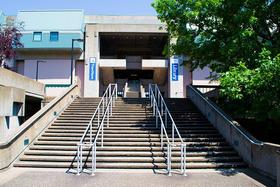Cosmetology has traditionally been the realm of trade schools that specialize in training and licensing hair stylists, nail technicians and skin care specialists. Many of the current trade schools are directly tied to a specific product brand, such as the Aveda chain of training institutes. However, the face of cosmetology is changing - and not just with new makeup skills. Today, cosmetology programs are expanding into community colleges that recognize a background in basic business principles, as well as cosmetology training, will help graduates move into and advance in the field of cosmetology.
Career Outlook for Cosmetology
According to the Bureau of Labor Statistics, the general job outlook for the field of cosmetology is favorable, with employment expected to grow at a faster than average rate in this industry. The industry is also considered one of the few recession-proof areas in which to work today. Cosmetology may incorporate the following positions:
- Barbers who are responsible for cutting and styling men's hair
- Hairdressers and stylists who cut, shampoo and style hair
- Manicurists and pedicurists that work specifically with polishing nails and applying extensions
- Estheticians or skin care specialists that offer facials and full body treatments
Nearly all of these positions will require licensure by the state in which the individual will work, although specific requirements vary by location and position.
This video explains the pros and cons of being a cosmetologist.
Bringing Business to Cosmetology






















